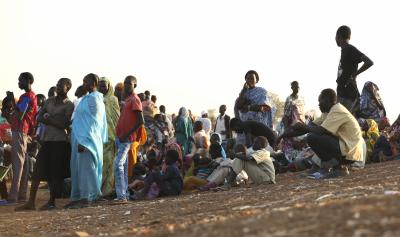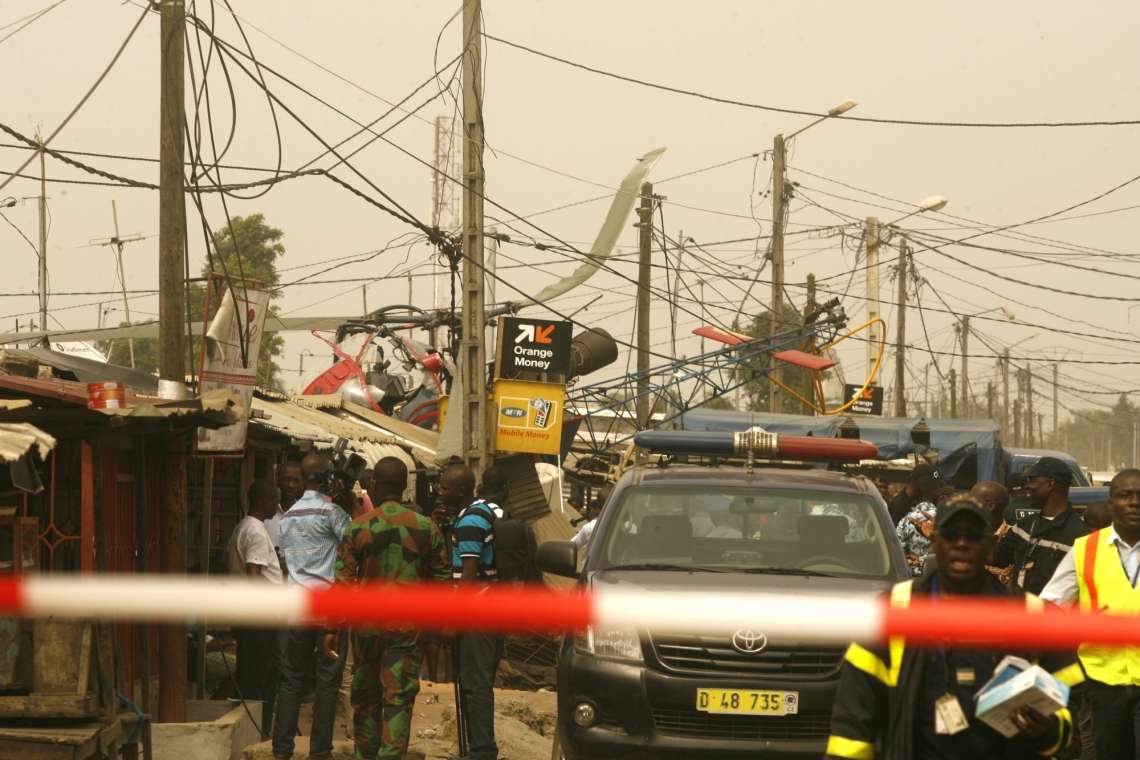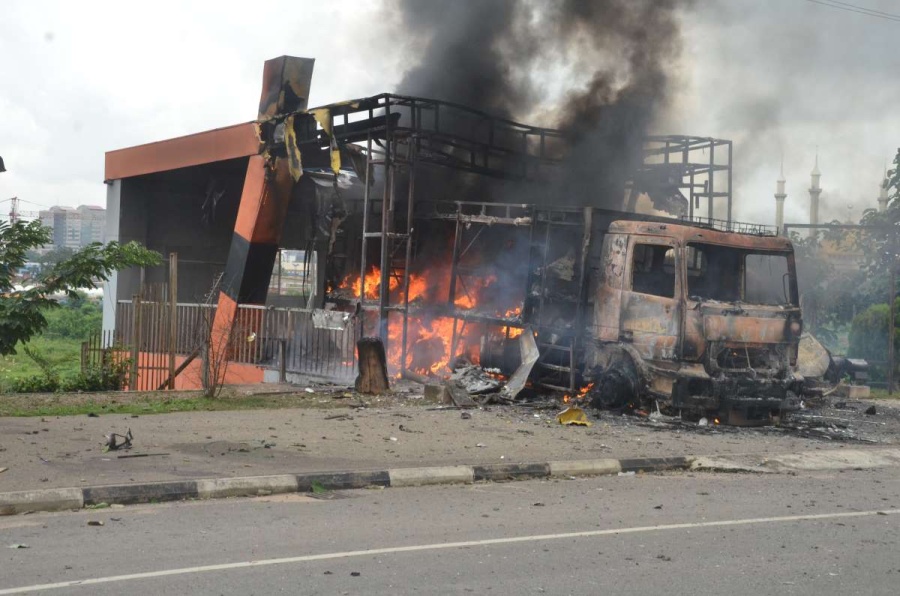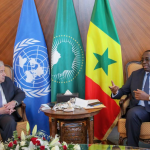Most are fleeing to the Central African Republic, Chad, Egypt, Ethiopia, Libya, South Sudan and Uganda, says UN Office for the Coordination of Humanitarian Affairs…reports Asian Lite News
Nearly 3 million refugees and returnees have fled Sudan after 18 months of war, crossing borders to seek safety in neighboring countries and further afield, mainly fleeing to the Central African Republic, Chad, Egypt, Ethiopia, Libya, South Sudan and Uganda, according to the UN Refugee Agency.
The UN Office for the Coordination of Humanitarian Affairs (OCHA) said on Wednesday that it is deeply concerned about people continuing to be displaced by conflict in several parts of Sudan.
The International Organization for Migration (IOM) estimated that some 40,000 people were newly displaced inside Sudan in the first half of October alone, amid escalating hostilities in some parts of the country as the rainy season ends. This brings the total internally displaced in Sudan since the conflict began in April last year to nearly 8.2 million people.
In West Darfur, an estimated 27,500 people were uprooted by insecurity and attacks in the town of Selea and surrounding villages in Jabal Moon earlier last week, IOM reported.
Due to the intensifying conflict in Darfur, close to 25,000 people arrived in eastern Chad in the first week of October alone, the highest number of new arrivals within a single week in 2024. Chad is host to 681,944 Sudanese refugees, more than any other country, OCHA said.
Calling on all parties to the conflict to stop the fighting, protect civilians, and facilitate humanitarian access, OCHA said that with the rains subsiding and more roads now passable, this is a crucial time for aid organizations to move vital supplies to areas where needs are most acute.
Meanwhile, the United Nations and its partners are working with Sudanese health authorities to scale up the cholera response, including through large-scale immunization, raising awareness, and providing access to safe water and sanitation, the office said.
As of Tuesday, more than 24,000 cholera cases, including about 700 related deaths, have been reported in the country since mid-July, OCHA said.
According to OCHA, the appeal of the Regional Refugee Response Plan for the Sudan emergency for 1.5 billion U.S. dollars to support refugees, returnees and host communities in the Central African Republic, Chad, Egypt, Ethiopia, Libya, South Sudan and Uganda, is only 27 percent funded, stretching the ability of humanitarian partners to protect and assist people in dire need.
The human cost has been staggering in the shadow of this power struggle. Women and children face extreme vulnerability—many have experienced sexual violence, abduction, and forced conscription, just like the young boy from Omdurman.
“What happened in Sudan is that it initially started as a civil war between two factions of the military, which at first were acting professionally, like trained soldiers do. But the lack of any breakthrough and the see-saw manner in which both sides are gaining and losing different territories has forced both sides to adapt,” Hussain explained. “Unfortunately, what they have now adapted to is the use of child soldiers.”
Hussain went to the extent of describing the children at war as mere “cannon fodder” for both sides. With hospitals and infrastructure collapsing, access to food, clean water, and medical aid has become scarce, and disease outbreaks are spreading. This conflict, largely forgotten by the world, represents one of the worst humanitarian crises of our time.
Reiterating the dire situation of humans in this never-ending war governed by global power politics, Hussain stated, “Every country’s approach to these conflicts, including the current situation in Sudan, is essentially driven by their own narrow, selfish, and national interests. And in all of this, the real issues of women and children get sidelined.”
Human Rights Watch has documented widespread sexual violence, used as a tool of war by militias. The 16-year-old girl’s story is only one of many. Women across Sudan have been abducted, raped, and tortured, their bodies used to exert control in the ongoing conflict.
Children, too, are paying a heavy price. Many have been recruited into militias as child soldiers, forced to fight in a war they do not understand. According to a UN report, children as young as 12 have been kidnapped, drugged, and sent into battle.
“The LRA (government) did not come up with this but took it to an alarmingly destructive level,” said Hussain. “Some of the LRA units were exclusively made of child soldiers. The success of such tactics in countering government forces led many other organisations, state or non-state, to adopt similar strategies across Africa—whether it was Somalia or Burkina Faso.”
The mass displacement in Sudan has forced millions of people to flee their homes, often trekking for days through dangerous territory in search of safety. Families arrive at overcrowded displacement camps, such as Zamzam in Darfur, with little more than the clothes on their backs. But the camps offer little relief. Famine has set in, with children suffering the most.
A mother in the Zamzam camp stays there with her two-year-old daughter, who weighs just 5 kilograms after months of severe malnutrition. “My child has lost her sight because of the hunger,” she says, her words reflecting the grim reality for many mothers trying to save their children from starvation.
ALSO READ: Africa a key trade, investment destination, says Murm














